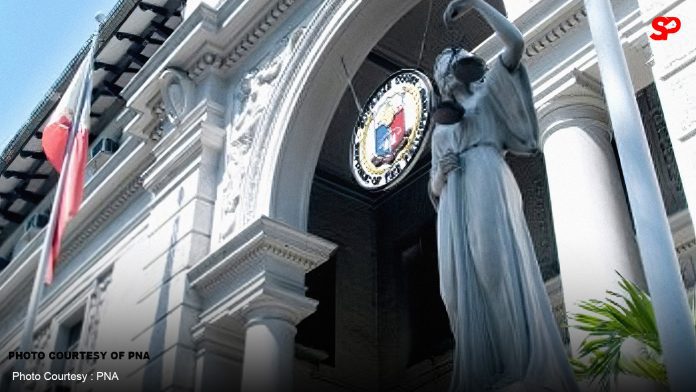MANILA – The Supreme Court (SC) has approved court rules on mediation of cases involving family disputes.
In a news release on Wednesday, the SC said the Rule on Family Mediation was approved on November 5, 2024 and took effect on December 29, 2024.
Family mediation is a process in which a mediator, acting as an impartial third party, facilitates the resolution of family disputes and helps the parties in reaching voluntary agreements.
“This initiative aims to address the emerging need for family mediation, both domestic and international, enhance the efficiency of family courts, reduce court backlogs, and promote the best interests of the child. The Rule also introduces innovations in dealing with family cases,” it said.
The rule is limited to suits between spouses; parents and children; other ascendants and descendants; siblings; relatives within the fourth civil degree of consanguinity (by blood) or affinity (by marriage); and parties in a common-law, dating or sexual relationship, former or present.
“Family mediation, a non-adversarial process, should include children and give them a chance to share their thoughts on issues that impact them. The process must focus on what is best for the child and the family,” the SC said.
Family mediation includes compromise agreement, such as support, custody, visitation, property relations, and guardianship under the Family Code; settlement of intestate estates (estates without a will); cross-border disputes in international child abduction, support, custody and visitation, guardianship, and other civil cases involving children filed in the Philippines between a Filipino resident and a citizen of a member-country of the Council of ASEAN Chief Justices (CACJ); and other civil cases or civil aspect of criminal cases where mediation is allowed by law, rules, and international conventions or agreements between parties covered by the Rule.
Under the rule, parties, except those in cross-border disputes, must first undergo a dispute resolution process and attempt to reach an amicable settlement before filing any court action.
If the parties do not reach a settlement and a case is filed, the court, after the pre-trial conference and once the issues have been joined, shall direct the parties to undergo mandatory family mediation as a final attempt to settle the dispute.
Statements made during family mediation cannot be used as evidence in court unless otherwise agreed upon.
Additionally, recording in any form by the family mediator is prohibited.
Support services may be provided to parties or minors while undergoing family mediation, including physical or psychological services and counseling.
The mediation period of 30 days must be strictly observed unless the court approves an extension of not more than 30 days.
Parties and their counsel shall personally appear for mediation unless a duly authorized representative appears with a special power of attorney (SPA).
The court may allow videoconference mediation, following the videoconferencing guidelines approved by the SC.
The following cases, are not subject to family mediation:
Civil cases that cannot be the subject of a compromise, such as the civil status of persons, validity of a marriage or legal separation, grounds for legal separation, future support, a court’s jurisdiction, and future legitime, or the portion of an estate reserved by law for heirs;
Habeas corpus, unless it relates to custody of minors;
Violations under the Anti-Violence Against Women and Their Children Act; and
All cases involving issues under the Family Code with applications for protection/restraining orders or preliminary injunctions. (PNA)

